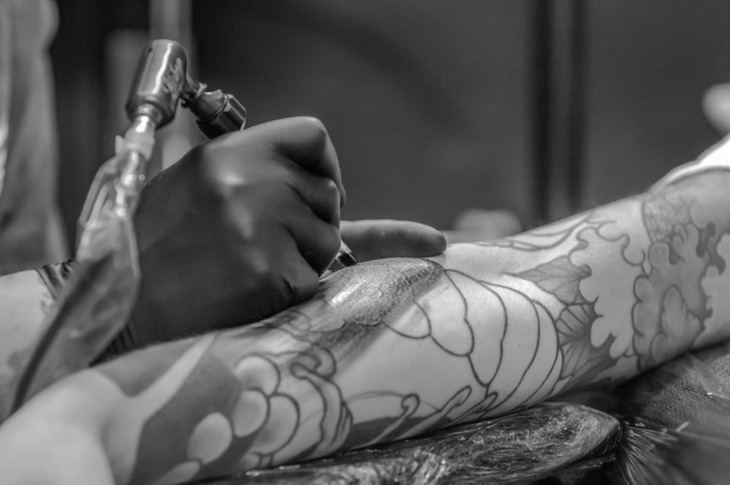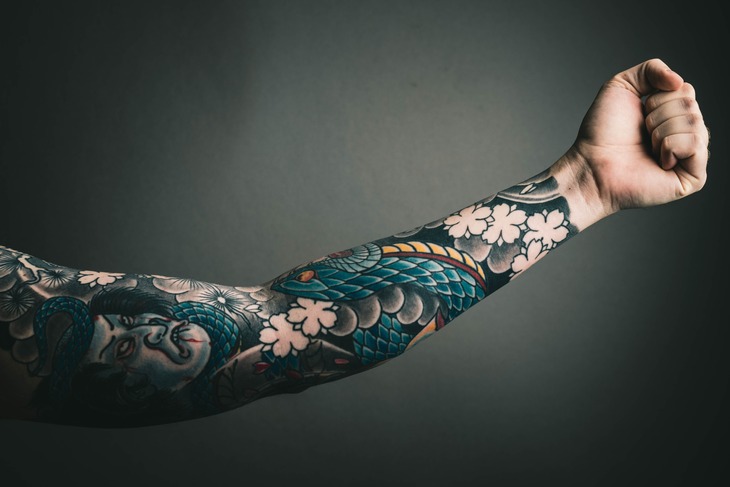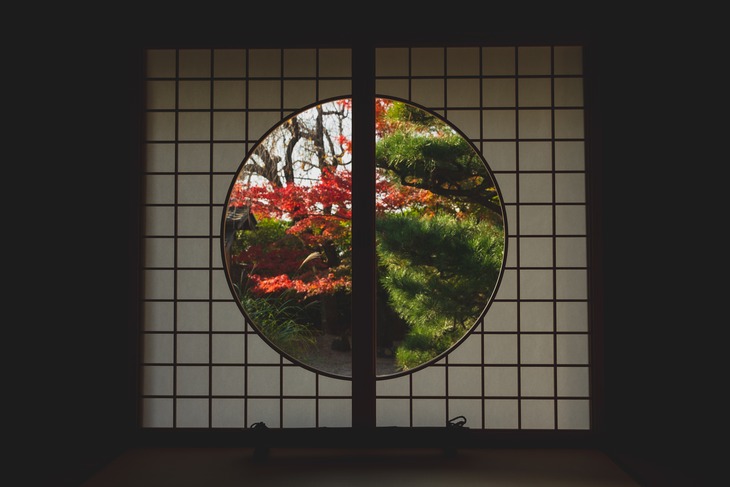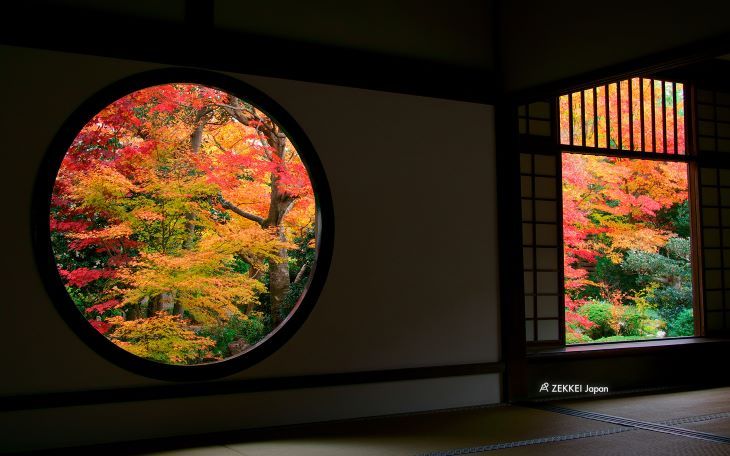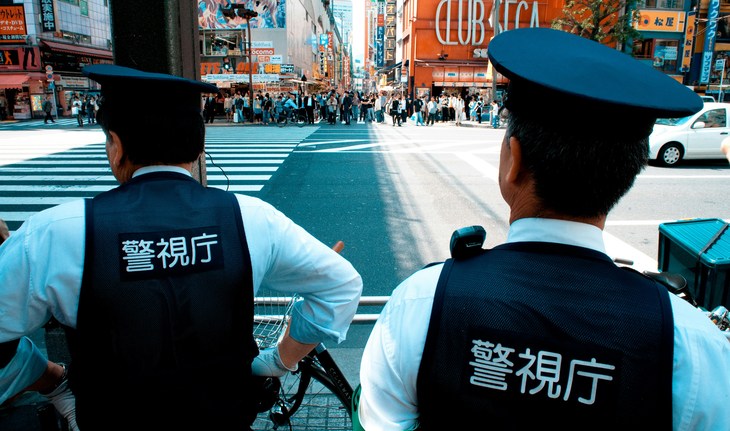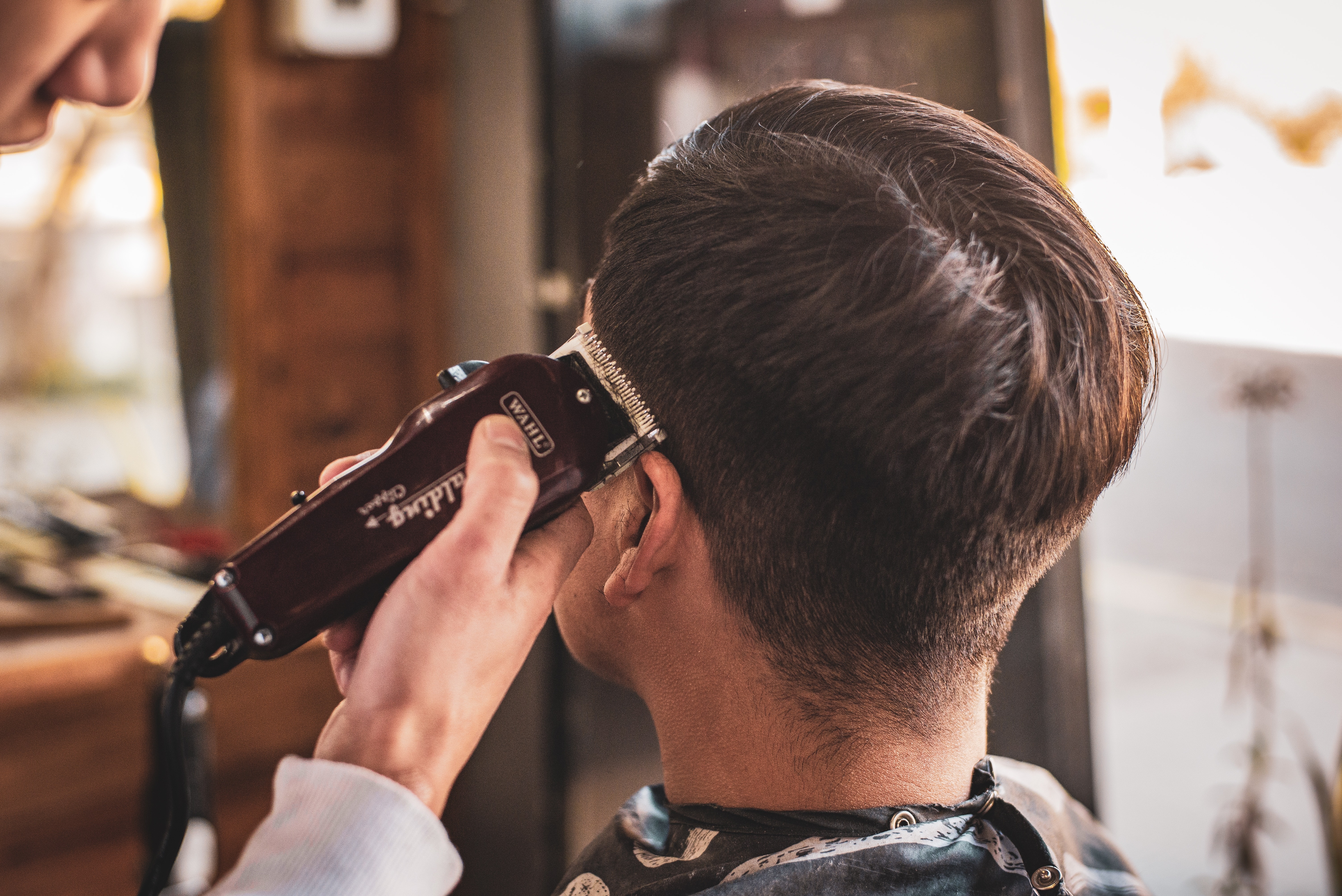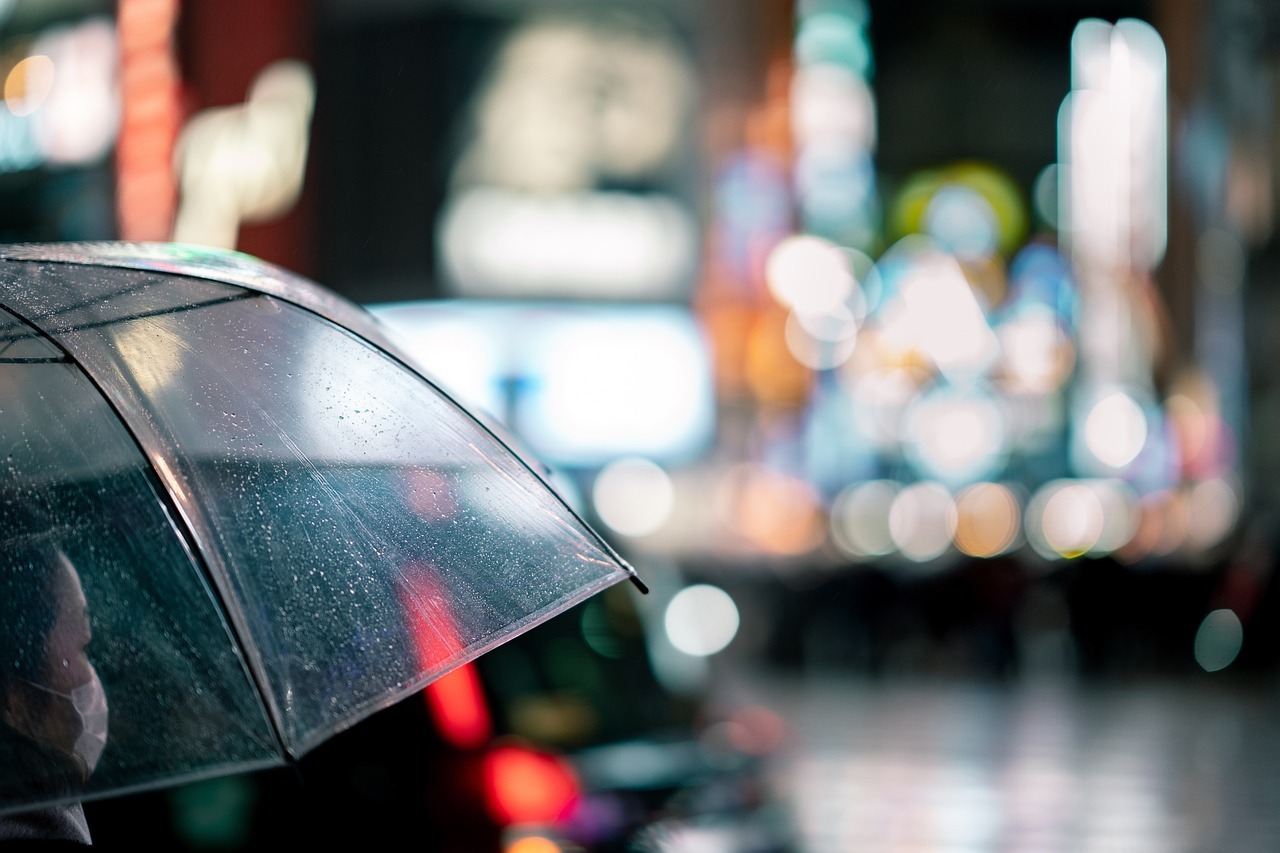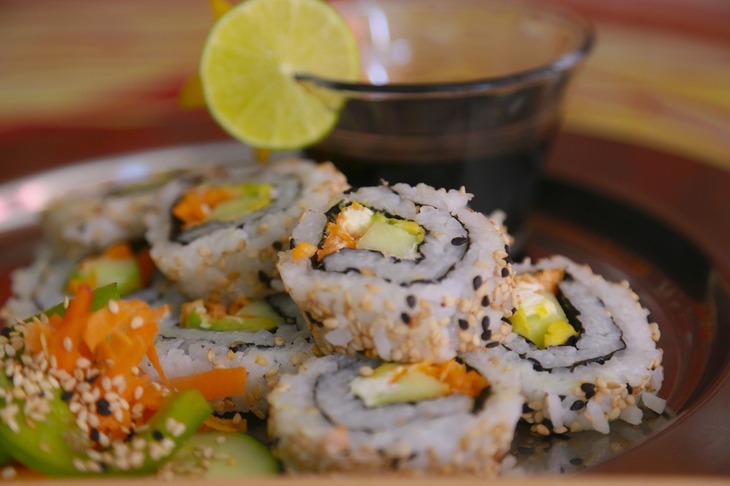Can You Visit Japan if you Have Tattoos?
Tattoos are becoming more and more popular each and every year around the world, especially in countries like the United States. And while in America it is common to see people rocking anything from small wrist tattoos to full arm sleeves, the opposite is true in Japan. It's rare to see someone in Japan showing off arms covered in tattoos, especially outside of big cities like Tokyo, and if you do see someone with visible tattoos, you might notice that other Japanese people may seem uncomfortable around them.
If you're planning on traveling to or moving to Japan, you might have heard that tattoos are completely unacceptable in the country and will get you thrown out of hot springs and other public places. But as times are changing and tattoos are becoming more commonplace around the world, is it really still impossible to enjoy much of Japan if you have a tattoo?
We'll answer that question and more as we dive into whether tattoos are really banned in Japan or if the situation is changing, what you can and cannot do if you have tattoos, and what to do if you are visiting or moving to Japan and have tattoos.
Are Tattoos Illegal in Japan?
The short answer to this question is: No!
But just because it isn't illegal in Japan does not mean it is socially acceptable to have tattoos-at least not yet.
There are no laws in Japan against having tattoos (although it was illegal for a while post-Meiji Restoration in the 19th Century), so if you come to Japan with tattoos, or even go to a tattoo parlor in Japan, you don't have to worry about any legal repercussions.
But, there is still a very strong cultural stigma associated with tattoos, stemming from a long history of tattoos being associated with criminals.
In the Edo period (1600s-1800s) criminals used to be punished by being tattooed on their faces or arms, publicly branding them as criminals. In modern times, tattoos became heavily associated with the yakuza (Japan's organized crime syndicates), since members of the yakuza often sport elaborate full-body tattoos that mark them as members of these syndicates. Yakuza members tattoo their whole bodies as a show of courage since the traditional process used for yakuza tattoos doesn't use modern-day mechanical tattoo machines and is therefore much more painful and time-consuming. These full-body tattoo "suits" can take years to complete and, since tattoos are permanent, act as lifelong proof of one's loyalty to the yakuza.
This means that to this day tattoos are still seen by many, especially older generations, as taboo. Up until 2020, tattoo artists were actually required to have a medical license in order to be able to practice, likely as an attempt by the government to limit the number of people getting tattoos. There's still debate as to whether or not tattoos should be made illegal, so Japan is still very far behind other countries in the world when it comes to accepting tattoos.
Are Tattoos Becoming More Acceptable in Japan?
This is a complicated question to answer, especially since so much of Japan's population is made up of older generations, but in recent years it has become more common to see younger people with tattoos, especially in large urban areas like Tokyo or Osaka. Younger generations are starting to see tattoos as fashionable, or as a means of personal expression, so the cultural perception of tattoos does seem to be slowly evolving.
A lot of Japanese people understand that in other countries around the world, tattoos do not have the same stigma attached to them. As more and more foreign tourists come to Japan each and every year, Japanese people are becoming more accustomed to seeing tattoos.
So if you travel to or move to Japan and have visible tattoos, people probably won't treat you differently just because of your ink. People will probably understand that your tattoos are a fashion or personal choice and be relatively accepting of them, especially if the person is younger. You won't need to worry about having tattoos while you're out and about in public.
That being said, having tattoos can still cause you to be denied entry to a lot of places, and can even cause problems if you're looking for a job or want to have certain medical procedures.
Situations Where it is NOT Okay to Have Tattoos
While young people's opinions of tattoos are changing, the opinions of many of the people running businesses and institutions in Japan are not. For these people, businesses, and institutions, tattoos are still a taboo and as a result, openly having tattoos can limit some of the places you can enter and some of the things you may want to do.
Places You May Not Be Allowed Into
Many hot springs (onsen), pools, gyms, and even some beaches won't let you in if you have tattoos. For these places, the size of the tattoo doesn't matter, so a tiny star tattoo on your ankle or giant angel wings tattooed on your back are treated the same when it comes to not allowing you to use the facility. If your clothes cover your tattoos then you should be able to get into some gyms without any trouble, but some gyms will outright refuse membership to people with any visible tattoos. In Japan, most hot springs require you to enter naked, which of course makes it a lot harder for you to hide your tattoos using clothing.
Job Restrictions & Workplace Policies
There are some workplaces in Japan that don't allow employees to have tattoos at all. Other businesses and workplaces where the work involves interacting with others (such as meeting with clients or teaching students) heavily frown upon tattoos, especially if the tattoo is in a highly visible place such as the face or wrists. These businesses consider tattoos to negatively affect one's public image, and often people who have tattoos are considered untrustworthy in business situations.
Medical & Aesthetic Procedures
There are also some medical treatments or procedures that may be off-limits to you if you have tattoos. Some medical facilities or beauty clinics won't perform certain cosmetic surgeries or laser treatments because the tattoos might interfere with the procedure in some way. Some medical institutions may not even let you have an MRI because they believe the ink in the tattoos can cause issues during the MRI. If you choose to live in Japan, long-term this may make your life more difficult.
Can You Still Enjoy Japan if You Have Tattoos?
Yes, you can!
While it may seem like it is much harder to enjoy your time in Japan if you have tattoos, don't lose hope! As times change, more and more ways to get around some of these limitations are emerging, meaning you can sport your tattoos and still get the most out of Japan. Here are some things you can and should do if you have tattoos and are in Japan in order to still have a great time and go wherever you want to go.
Find Tattoo-Friendly Facilities
There are hot springs, bathhouses, pools, and gyms in Japan that do allow tattoos, it's just a question of finding them! Especially in Tokyo and other big cities, you're much more likely to find places that are tattoo-friendly. Since a lot of these facilities don't want to lose out on potential business from tourists and foreign residents of Japan, they'll allow you in no matter how many tattoos you have.
Usually, places that do not allow tattoos very clearly state this using signs inside and outside (often in both Japanese and English), so if you do not see any signs you may be in the clear. But to be safe it is worth asking the facility before entering or doing a quick search online, as the places you might be interested in often have this information available on their websites.
Find Private & Family Baths!
Hot springs, bathhouses, and Japanese inns (ryokan) with hot springs sometimes have private or family baths available. These baths are usually only used by families to avoid disturbing others or by couples who want to bathe together, but people with tattoos are often allowed to use these baths even if they are not allowed to use the onsen's public baths. But since it is up to each individual business to decide whether or not to allow someone with tattoos to use the family baths, be sure to check online or ask the facility first.
Cover Up Your Tattoos!
You might be proud of your tattoos and want to show them off to the world, but if you want to get into facilities that do not allow tattoos, covering them up may be your best (or only) option.
For places like gyms, you can wear clothes that cover up your tattoos. Wristbands can be useful for covering up any small tattoos around your wrists, and athletic tape is another option.
One option that might work well for you at most facilities is to use tattoo covers: special sheets that are usually skin-colored and often waterproof. Many places, including hot springs, will let you into the baths if you use these sheets to cover up your tattoos. That being said, some facilities might only let you in if your tattoos can be covered by single sheets, so they may not allow you in if you have tattoos that cover a large area of your body. Again, these policies are all up to each individual facility, so be sure to check before you go.
Should You Visit Japan if You Have Tattoos?
The stigma against tattoos is one that has existed for a long time and is deeply rooted in Japanese culture, meaning that getting rid of the stigma will likely take much more time than in other countries. However, as more and more young people embrace tattoos, Japanese society's opinions and rules surrounding tattoos will continue to change.
Even though you may feel more limited than someone without any tattoos, it is entirely possible to have an amazing time in Japan and do the things that you want to do even if you have tattoos. So if you are planning on visiting Japan or thinking about moving here, don't let your tattoos stop you from coming!














